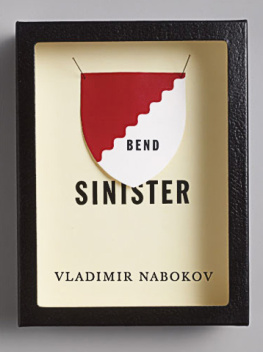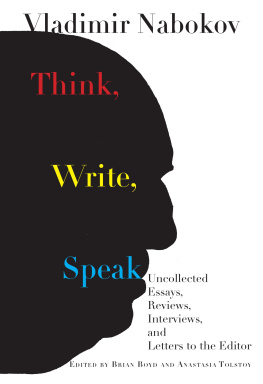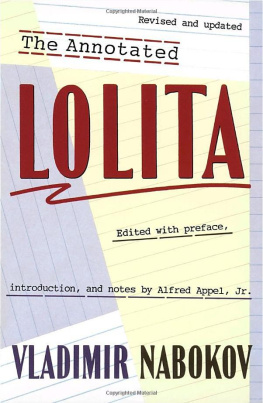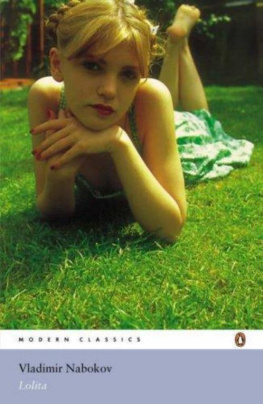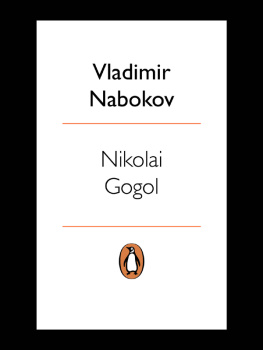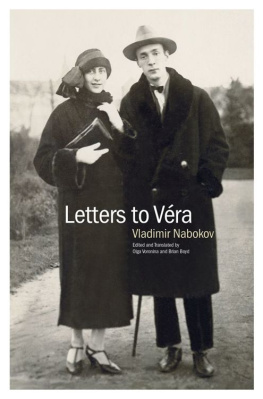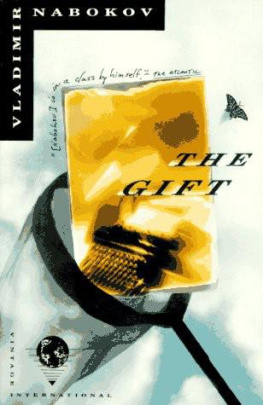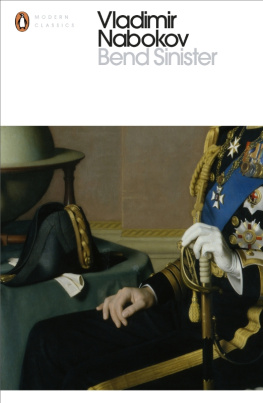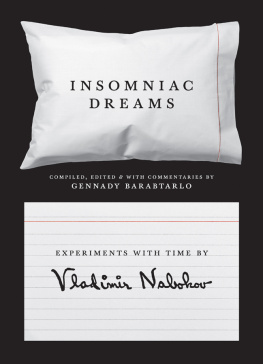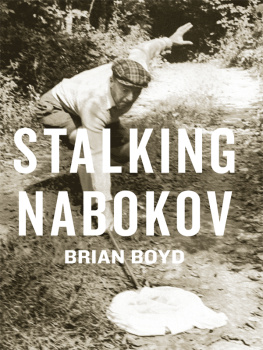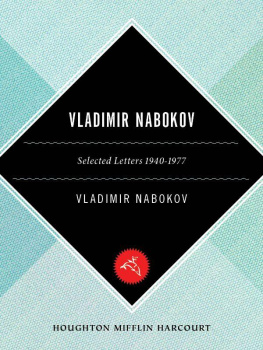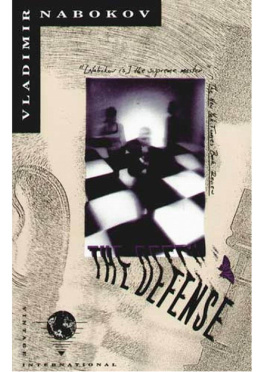Bend Sinister
Vladimir Nabokov
Contents
Introduction
Bend Sinister was the first novel I wrote in America, and that was half a dozen years after she and I had adopted each other. The greater part of the book was composed in the winter and spring of 1945-1946, at a particularly cloudless and vigorous period of life. My health was excellent. My daily consumption of cigarettes had reached the four-package mark. I slept at least four or five hours, the rest of the night walking pencil in hand about the dingy little flat in Craigie Circle, Cambridge, Massachusetts, where I lodged under an old lady with feet of stone and above a young woman with hypersensitive hearing. Every day including Sundays, I would spend up to 10 hours studying the structure of certain butterflies in the laboratorial paradise of the Harvard Museum of Comparative Zoology; but three times a week I stayed there only till noon and then tore myself away from microscope and camera lucida to travel to Wellesley (by tram and bus, or subway and railway), where I taught college girls Russian grammar and literature.
The book was finished on a warm rainy night, more or less as described at the end of Chapter Eighteen. A kind friend, Edmund Wilson, read the typescript and recommended the book to Allen Tate, who had Holt publish it in 1947. I was deeply immersed in other labors but nonetheless managed to discern the dull thud it made. Praises, as far as I can recall, rang out only in two weeklies Time and The New Yorker, I think.
The term 'bend sinister' means a heraldic bar or band drawn from the left side (and popularly, but incorrectly, supposed to denote bastardy). This choice of title was an attempt to suggest an outline broken by refraction, a distortion in the mirror of being, a wrong turn taken by life, a sinistral and sinister world. The title's drawback is that a solemn reader looking for 'general ideas' or 'human interest' (which is much the same thing) in a novel may be led to look for them in this one.
There exist few things more tedious than a discussion of general ideas inflicted by author or reader upon a work of fiction. The purpose of this foreword is not to show that Bend Sinister belongs or does not belong to 'serious literature' (which is a euphemism for the hollow profundity and the ever-welcome commonplace). I have never been interested in what is called the literature of social comment (in journalistic and commercial parlance: 'great books'). I am not 'sincere,' I am not 'provocative,' I am not 'satirical.' I am neither a didacticist nor an allegorizer. Politics and economics, atomic bombs, primitive and abstract art forms, the entire Orient, symptoms of 'thaw' in Soviet Russia, the Future of Mankind, and so on, leave me supremely indifferent. As in the case of my Invitation to a Beheading with which this book has obvious affinities automatic comparisons between Bend Sinister and Kafka's creations or Orwell's clichs would go merely to prove that the automaton could not have read either the great German writer or the mediocre English one.
Similarly, the influence of my epoch on my present book is as negligible as the influence of my books, or at least of this book, on my epoch. There can be distinguished, no doubt, certain reflections in the glass directly caused by the idiotic and despicable regimes that we all know and that have brushed against me in the course 'of my life: worlds of tyranny and torture, of Fascists and Bolshevists, of Philistine thinkers and jackbooted baboons. No doubt, too, without those infamous models before me I could not have interlarded this fantasy with bits of Lenin's speeches, and a chunk of the Soviet constitution, and gobs of Nazist pseudo-efficiency.
While the system of holding people in hostage is as old as the oldest war, a fresher note is introduced when a tyrannic state is at war with its own subjects and may hold any citizen in hostage with no law to restrain it. An even more recent improvement is the subtle use of what I shall term 'the lever of love' the diabolical method (applied so successfully by the Soviets) of tying a rebel to his wretched country by his own twisted heartstrings. It is noteworthy, however, that in Bend Sinister Paduk's still young police state where a certain dull-wittedness is a national trait of the people (augmenting thereby the possibilities of muddling and bungling so typical, thank God, of all tyrannies) lags behind actual regimes in successfully working this lever of love, for which at first it rather haphazardly gropes, losing time on the needless persecution of Krug's friends, and only by chance realizing (in Chapter Fifteen) that by grabbing his little child one would force him to do whatever one wished.
The story in Bend Sinister is not really about life and death in a grotesque police state. My characters are not 'types,' not carriers of this or that 'idea.' Paduk, the abject dictator and Krug's former schoolmate (regularly tormented by the boys, regularly caressed by the school janitor); Doctor Alexander, the government's agent; the ineffable Hustav; icy Crystalsen and hapless Kolokololiteshchikov; the three Bachofen sisters; the farcical policeman Mac; the brutal and imbecile soldiers all of them are only absurd mirages, illusions oppressive to Krug during his brief spell of being, but harmlessly fading away when I dismiss the cast.
The main theme of Bend Sinister, then, is the beating of Krug's loving heart, the torture an intense tenderness is subjected to and it is for the sake of the pages about David and his father that the book was written and should be read. Two other themes accompany the main one: the theme of dim-brained brutality which thwarts its own purpose by destroying the right child and keeping the wrong one; and the theme of Krug's blessed madness when he suddenly perceives the simple reality of things and knows but cannot express in the words of his world that he and his son and wife and everybody else are merely my whims and megrims.
Is there any judgment on my part carried out, any sentence pronounced, any satisfaction given to the moral sense? If imbeciles and brutes can punish other brutes and imbeciles, and if crime still retains an objective meaning in the meaningless world of Paduk (all of which is doubtful), we may affirm that crime is punished at the end of the book when the uniformed waxworks are really hurt, and the dummies are at last in quite dreadful pain, and pretty Mariette gently bleeds, staked and torn by the lust of 40 soldiers.
The plot starts to breed in the bright broth of a rain puddle. The puddle is observed by Krug from a window of the hospital where his wife is dying. The oblong pool, shaped like a cell that is about to divide, reappears subthematically throughout the novel, as an ink blot in Chapter Four, an inkstain in Chapter Five, spilled milk in Chapter Eleven, the infusoria-like image of ciliated thought in Chapter Twelve, the footprint of a phosphorescent islander in Chapter Eighteen, and the imprint a soul leaves in the intimate texture of space in the closing paragraph. The puddle thus kindled and rekindled in Krug's mind remains linked up with the image of his wife not only because he had contemplated the inset sunset from her death-bedside, but also because this little puddle vaguely evokes in him my link with him: a rent in his world leading to another world of tenderness, brightness and beauty.
And a companion image even more eloquently speaking of Olga is the vision of her divesting herself of herself, of her jewels, of the necklace and tiara of earthly life, in front of a brilliant mirror. It is this picture that appears six times in the course of a dream, among the liquid, dream-refracted memories of Krug's boyhood (Chapter Five).

